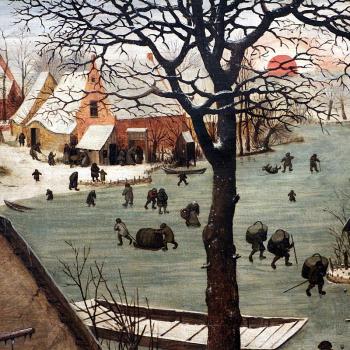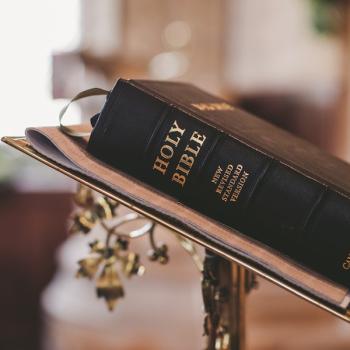Again, things seemed rather messy to me, rather complicated, rather precarious. And who seemed most precarious here? The Eastern Catholics—in my case, most specifically, the Byzantine Catholics. Living near a Ruthenian Church, being a highly-Americanized descendant of Slovaks, this sui iuris Church made the most sense to me. Being Ruthenian was a way of acknowledging the precariousness and messiness of my own life, of history, of my own history. I could continue to love the mysticism and theology of both East and West while living out ecclesial and historical ambiguity (and, with time, I actually came to appreciate Aquinas a lot more!). Fr. James Siemens has expressed this idea very well:
I am a Ukrainian priest. I serve Ukrainians, and anyone else who wishes to encounter the Christian Faith as it has been received in the East historically influenced by Byzantium. I am not Greek, but an Eastern Christian, whose traditions are shared with the Greeks, and the Arabs, and the Slavs. I am not a Roman Catholic, but a Catholic whose practice looks very little like that of his Latin brethren, and whose religious culture and language is so different that it would seem almost unintelligible to many Romans. And these descriptions, among even those who are least informed of Church matters, is generally understood as Orthodox.
I say, then, that we of the Ukrainian Greek Catholic Church should lay claim to a word that has been used against us for a very long time, and yet should represent no offence at all. ‘Uniate’ may be a word that has been used to deride us, but I am happy to live out my Orthodoxy in union, so why should I feel derided? Moscow may see us as betrayers, but of what? Betrayers of not being united with Rome? Betrayers of Muscovite imperialism? I am quite happy being derided for that.
His final thoughts on what we should call ourselves are even more interesting:
A scholarly friend suggested to me once that the best term for us is ‘Uniate Orthodox’, and at first I thought he was kidding. The more I considered the implications of the idea, however, the more I realised that my friend was not only completely serious; he was right. It is a term that can equally apply to all the Eastern Churches who have re-entered communion with Rome, from Ukraine to Syria, to Egypt and Ethiopia, to India. It is a term that does not deny the Latinisations that have crept into some of our Churches and which some of the faithful hold dear; it simply absorbs them as a feature of ‘uniatism’, and permits them to wane naturally and with gentle, pastoral teaching. It is a term that does not shy away from the question of our relations with the Holy See; indeed, it asserts it with confidence. Most importantly, though, it describes where we have come from, what we are meant to be, and where we must return – whether in this world or the next. For this reason, I plan to start using the term, and hope that others will join me.
Father gets a little polemical here, but I fundamentally agree with him. We Byzantines (and other Eastern Catholics) are called to challenge both sides in this debate, to be open about a history of marginalization that is (thank God!) changing, even as we affirm the power of being in communion with many deeply-variant liturgical and theological traditions (united by common dogma). This leaves us in a place of oddness, of (I will say it one more time) precariousness. There are times this is hard (like when derided by more ultramontane Latin brethren), and there are times when it is easier (like when reminded that Catholics allow Orthodox to receive the Eucharist, but not the reverse). Being Byzantine is never easy, but it does feel truthful; it feels honest.
Being Catholic gives me access to a diversity of rites, theologies, and tradition in full, but imperfect, communion, an idea with a rich history. Being Byzantine allows me to embrace the spirituality that has called me, attracted me. Being Catholic affirms the need for ecumenism, of a desire for a mended Schism, of the best of what Vatican II represents. Being Byzantine places me at the margins; it opens up the potential for transformation through protest within communion. Being Catholic upholds the need for some degree of meaningful primacy, even as being Byzantine roars back that primacy must be understood in collegiality. Being Byzantine Catholic means precariousness.
I hope and pray my words here have not offended anyone. I have simply endeavored to testify to my own failings, my own life, and my own history as it weaves its way into and around the history of our Churches. No one is blameless in these conflicts (myself very much included), and no amount of my invoking “messiness” will heal all old wounds. And yet, I must pray, I must cry out:
Is there no balm in Gilead,
no healer there?
Why does new flesh not grow
over the wound of the daughter of my people?
Oh, that my head were a spring of water,
my eyes a fountain of tears,
That I might weep day and night
over the slain from the daughter of my people!
(Jeremiah 8:22-23)













